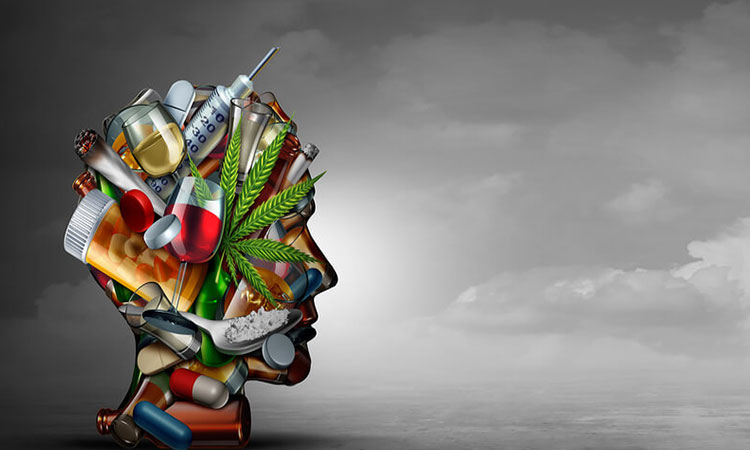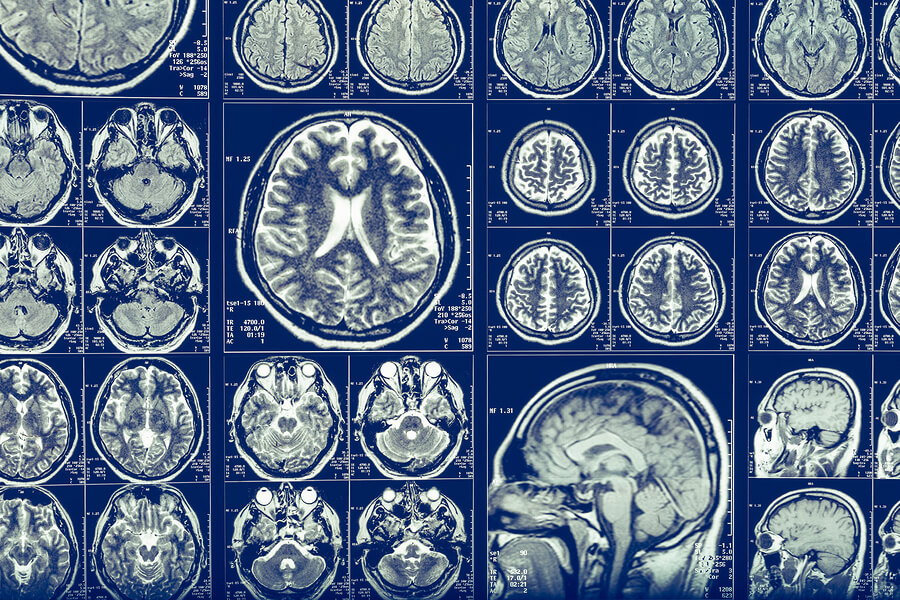
What Is Addiction? – One of the most commonly accepted definitions of addiction comes from the American Society of Addiction Medicine (ASAM).
ASAM defines addiction as:
“…a primary, chronic disease of brain reward, motivation, memory, and related circuitry. Dysfunction in these circuits leads to characteristic biological, psychological, social, and spiritual manifestations. This is reflected in an individual pathologically pursuing reward and/or relief by substance use and other behaviors.”
Furthermore, ASAM states that addiction “…is characterized by [an] inability to consistently abstain, impairment in behavioral control, craving, diminished recognition of significant problems with one’s behaviors and interpersonal relationships, and a dysfunctional emotional response.”
Most experts agree that three overlapping components characterized addiction: a loss of control, continued abuse of a substance or engagement in a particular behavior in spite of adverse consequences, and a high potential for relapse. In general, most people will experience all of these at some point in the addiction development process.
The Three Main Components of Addiction
Loss of Control
When a person has an addiction, using a substance or engaging in certain behaviors are so ingrained that, eventually, he or she tends to lose control of actions. It doesn’t matter how resolutely the person is determined to cut back on drinking, drug use, or behavioral addictions, such as gambling, if someone is an addict, he or she will likely fall back into former bad habits regardless of how earnest he or she is about reducing these destructive behaviors.
This behavioral effect occurs because when a person is addicted, changes in the brain make it inconceivable for someone to exert the same self-control he or she once had. The compulsive seeking of the substance or activity in question is the most obvious signs of addiction, and unfortunately, most people don’t appreciate just how difficult it is for an addict to exert control.
In fact, NIDA notes that brain imaging studies have shown that in people with addictions, certain areas of the brain that regulate behavior control, judgment, and decision-making are structurally different from non-addicts. Experts believe these changes help explain the compulsive and harmful behaviors in which an addicted person will willingly engage.
Impairment

Most people recognize that some behaviors come with serious adverse consequences and know not to participate in that behavior again. The humiliation of getting caught in a lie to friends or family members can help keep people honest.
Regarding addiction, there is a myriad of negative outcomes that should be enough to turn most people against using again. Serious health conditions such as organ damage, cardiac problems, and breathing abnormalities are common with the use of many substances. Legal and financial implications can also result from unchecked addictions.
And, when someone is an addict, his or her social and family life is bound to suffer, as well. But for the addict, all of these negative effects of a substance or behavioral addiction aren’t enough to moderate their actions. Moreover, continuing to engage in these activities in spite of one’s life falling apart is a clear marker of a serious problem.
Relapse
The final trait of an addiction is the fact that it is chronic, and many addicts end up relapsing at one point in their lives. Indeed, research has shown that people with substance use disorders have as much as a 50% chance of resorting back to the use of drugs or alcohol sometime in the future, perhaps long after they achieved sobriety.
This statistic may seem troublesome, but the fact is that these numbers aren’t much different than those related to other chronic diseases. According to NIDA, for example, type 1 diabetes has a relapse rate of around 30-50%. Hypertension (high blood pressure) has a relapse rate of around 50-70%, similar to those who are living with asthma.
Like other chronic diseases, there is no single, tried and true cure for addiction. Instead, an emphasis is placed on continuous, long-term treatment and management. Beyond that, relapse doesn’t automatically mean that the person, or their treatment, has failed, but that the approach used needs to be modified and reinstated.
Brain Changes Due to Addiction
As noted, research has shown that the brain of an addict is physically different than those of non-addicts. Many psychoactive substances influence the brain’s reward center by flooding it with dopamine, a chemical neurotransmitter responsible for feelings of well-being and pleasure. Activities such as eating food, engaging in a hobby, exercising, and spending quality time with friends and family may impact that reward circuit.
But eating a delicious meal or spending time with loved ones generally provides people with a controlled dose of dopamine, whereas using drugs or alcohol results in a flood. In fact, NIDA states that some substances can release up to ten times the amount of dopamine that is triggered naturally. This overstimulation of the reward system produces the intensely pleasurable “high” that compels many people to use the substance again and again.
As a person continues their drug or alcohol use, the brain gradually becomes accustomed to the excess dopamine. Over time, it starts producing less of it and reduces the body’s ability to respond to it – this effect is usually referred to as tolerance. Just like anything else, your body knows when it has been exposed to too much of something, and it immediately begins attempting to reestablish a balance.
Sometimes the brain increases the potency of certain chemicals to counteract the influence of the drug, as is the case with alcohol and benzodiazepines. Other times it deactivates specific receptors that enable the euphoric high, such as with opioids. And finally, the brain may render adrenaline less effective, as with certain behavioral addictions.

How Brain Changes Impact Those Affected
Regardless of the specific changes taking place, it’s the brain’s attempt to ensure that the drugs or behaviors that a person is addicted begin to have a less intense effect. When this occurs, the person will require more of the substance or desired activity to achieve the same high (tolerance).
Another effect of these changes is a reduction in pleasure once experienced from activities the person used to enjoy. Addicts often become less interested in social activities, food, and hobbies. These activities no longer stimulate the brain’s reward system because the excess dopamine produced by drug use has made the person less sensitive to enjoyment from routine activities and the corresponding “normal” amounts of dopamine associated with them.
Moreover, this is why a loss of interest in a variety of things once considered enjoyable is one of the most common indicators that a person has a serious addiction problem.
Finally, as addiction progresses and becomes increasingly intense, the structural changes in the brain become more pronounced. And when and if a person does attempt to quit or even cut back, these immense changes can induce some highly unpleasant physical and psychological symptoms known as withdrawals. The onset of withdrawal symptoms is a hallmark sign of the development of chemical dependence.
Treatment for Addiction
Midwood Addiction Treatment offers comprehensive, evidence-based programs that address and treat both the causes and effects of drug and alcohol addiction. Our compassionate and highly-skilled staff provide clients with the tools and support they need to achieve a full recovery. We render services vital to the recovery process, such as psychotherapy, counseling, and long-term aftercare planning.
If you or someone you love is suffering from an addiction to drugs or alcohol, we urge you to contact us as soon as possible for a free consultation.